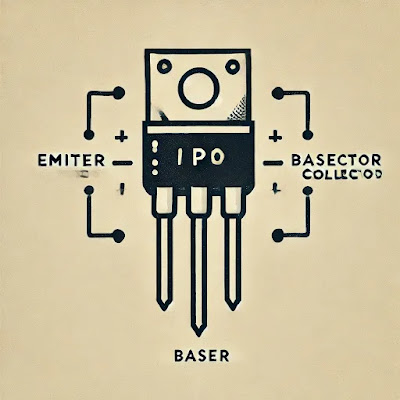Transistors are one of the most groundbreaking inventions that have laid the foundation of modern technology. These small components, which lie at the heart of computers, mobile phones, televisions, and countless electronic devices, form the basis of many technologies that have changed our lives.
What is a Transistor?
A transistor is a semiconductor device used in electronic circuits. Its primary function is to amplify or switch electrical signals. The invention of transistors marked a turning point in the development of electronics and digital technology and plays a crucial role in the operation of many devices.
Transistors are typically made from semiconductor materials like silicon or germanium. They have three terminals: emitter, base, and collector. The flow of electric current between these terminals can be controlled by a small input signal, allowing a larger output signal to be produced.
The History of Transistors
The history of transistors dates back to 1947 when researchers John Bardeen, Walter Brattain, and William Shockley at Bell Labs invented the first working transistor, revolutionizing the world of electronics. This invention largely eliminated the need for vacuum tubes and paved the way for smaller, faster, and more energy-efficient devices.
The invention of transistors made such a significant impact in the scientific world that the three scientists were awarded the Nobel Prize in Physics in 1956. This breakthrough allowed for rapid advancements in computers and communication technologies, opening the door to the digital revolution of the modern world.
The Importance and Applications of Transistors
Transistors have transformed the principles of electronic devices and serve as the building blocks of numerous technologies. Here are some key points that highlight their importance and applications:
Computers: Transistors are the core components of computer processors. Microprocessors contain billions of transistors, which determine the processing speed and performance of computers.
Telecommunications: Many telecommunication devices, such as mobile phones, radio receivers, televisions, and satellite communication systems, use transistors to process and transmit signals.
Power Electronics: Transistors are used in devices like electric motors and power supplies to optimize energy management.
Digital Electronics: In digital circuits, transistors are used to perform logical operations. Logic gates (AND, OR, NOT, etc.) and other digital circuit components operate through transistors.
The Impact of Transistors on the Modern World
The invention of transistors has significantly contributed to the rapid development of technological innovations and laid the foundation of the digital world. Thanks to transistors, computers, mobile phones, the internet, and many other technologies have become more advanced and accessible over time. The continuous increase in the number of transistors in microprocessors has made devices smaller, faster, and more powerful.
The impact of transistors on the modern world extends beyond electronic devices; it has also led to significant advancements in science, engineering, medicine, and communication. Many of the technologies we use today have been made possible thanks to the invention of transistors.

Comments
Post a Comment